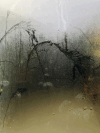Opening up creative resources: towards age-friendly communities through rhizomatic thinking and doing
- PMID: 39877130
- PMCID: PMC11771459
- DOI: 10.1080/09650792.2024.2370277
Opening up creative resources: towards age-friendly communities through rhizomatic thinking and doing
Abstract
Globally, many complex issues, like the ageing population and health inequalities, require attention. People are experimenting to combat these issues in their local contexts through bigger or smaller networks; however, much of the knowledge about these initiatives remains localised and elitist and omits the voices and perspectives of citizens. This article identifies the characteristics of a more horizontal, emergent and plural epistemology to mobilize knowledge. We used local networks building age-friendly communities in the Netherlands as a case study. With members of 110 local networks, we worked with a new methodology called dynamic knowledge synthesis to create fruitful interactions and learn with stakeholders, including older citizens, in a learning community. Four working principles helped us, namely (1) a rhizomatic design based on multiplicity, heterogeneity and non-linearity of knowledge; (2) fertile soil nurtured by the talents and wisdom of participants through participatory arts-based methods; (3) so-called 'wicked skills' of a forester 2.0 to facilitate learning; and (4) an ecosystem metaphor as a boundary object to understand local networks. We invite colleagues to experiment with dynamic knowledge synthesis to connect on different levels, with particular attention to the inclusion of citizens in creating sustainable local communities.
Keywords: Age-friendly community; ecosystem-thinking; horizontal epistemology; metaphors; participatory arts-based research.
© 2024 The Author(s). Published by Informa UK Limited, trading as Taylor & Francis Group.
Conflict of interest statement
No potential conflict of interest was reported by the author(s).
Figures














Similar articles
-
"Take a walk in someone else's shoes": the role of participatory arts for health research development and training.Res Involv Engagem. 2023 Jun 8;9(1):40. doi: 10.1186/s40900-023-00441-6. Res Involv Engagem. 2023. PMID: 37291659 Free PMC article.
-
Lessons from a research partnership in southwest England to understand community palliative care needs in rural, coastal and low-income communities.Public Health Res (Southampt). 2024 Feb 28:1-40. doi: 10.3310/ATFA4287. Online ahead of print. Public Health Res (Southampt). 2024. PMID: 38421270
-
Co-creating inclusive spaces and places: Towards an intergenerational and age-friendly living ecosystem.Front Public Health. 2023 Jan 4;10:996520. doi: 10.3389/fpubh.2022.996520. eCollection 2022. Front Public Health. 2023. PMID: 36685002 Free PMC article.
-
Subjective experiences of participatory arts engagement of healthy older people and explorations of creative ageing.Public Health. 2021 Sep;198:53-58. doi: 10.1016/j.puhe.2021.06.019. Epub 2021 Aug 4. Public Health. 2021. PMID: 34358765
-
Opportunities and practices supporting responsive health care for forced migrants: lessons from transnational practice and a mixed-methods systematic review.Health Soc Care Deliv Res. 2025 May;13(13):1-182. doi: 10.3310/MRWK3419. Health Soc Care Deliv Res. 2025. PMID: 40326302
References
-
- Abma, Tineke. 2020a. “Ethics Work for Good Participatory Action Research. Engaging in a Commitment to Epistemic Justice.” Beleidsonderzoek Online 1 (6). 10.5553/BO/221335502020000006001. - DOI
-
- Abma, Tineke. 2020b. “Waardenwerk voor goed participatief onderzoek.” Waardenwerk, Journal of Humanistic Studies 82-83:46–57. Accessed June 24, 2024. https://www.waardenwerkdigitaal.nl/p/waardenwerk-voor-goed-participatief....
-
- Abma, Tineke. 2022a. “Patiëntparticipatie in een academisch ziekenhuis.” Waardenwerk, Journal of Humanistic Studies 90-91:35–45. Accessed June 24, 2024. https://www.waardenwerkdigitaal.nl/p/patientparticipatie-in-een-academis....
LinkOut - more resources
Full Text Sources
